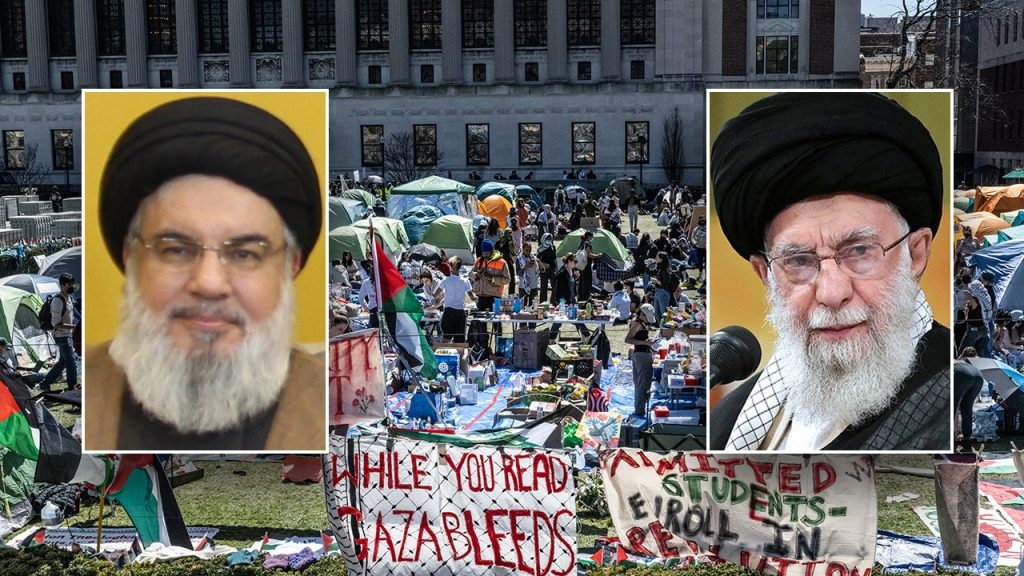In recent weeks, Iran and its proxies have been actively celebrating the anti-Israel protests that have been taking place at various American universities. Experts have noted that Iranian media is extensively covering these protests and portraying them as evidence of a shift in American attitudes towards Israel. Iranian Foreign Minister Hossein Amir-Abdollahian has expressed support for those speaking out against Israel and has criticized law enforcement response to the protests. Iranian news outlets have highlighted demonstrations at Ivy League universities like Yale and Harvard, where students have condemned Israeli actions in Gaza and demanded that academic associations sever ties with Israel.
Pro-Iranian news networks like Al-Alam have praised the protests as signs of changing attitudes among the American public, particularly the youth, towards their government’s support for Israel. Lebanese Hezbollah Secretary-General Hassan Nasrallah has also commended the anti-Israel demonstrations in the U.S., calling them influential and important in pressuring the Biden administration to change its policies. Some concerns have been raised about the organization of these protests, with ties to former members of Palestinian militant groups and Iranian influence being highlighted as factors behind the movements.
Steven Stalinsky, the executive director of the Middle East Media Research Institute, has pointed out the similarities in statements made by Hamas and other jihadist groups regarding the protests, indicating a coordinated effort to pressure U.S. policymakers. Stalinsky has also raised concerns about the role of student groups like Students for Justice in Palestine in organizing protests and promoting anti-Israel sentiments on college campuses. These groups have been accused of instigating protests and spreading misinformation, as well as being influenced by Iranian proxies like Hezbollah and individuals with ties to militant groups.
The intensification of anti-Israel protests on American college campuses has drawn attention from Iranian media outlets, which see these demonstrations as evidence of growing anti-Israel sentiment in the U.S. Iranian officials have expressed support for the protesters and criticized the U.S. government’s response to the unrest. The protests have spread to various universities, including Ivy League institutions like Columbia, Harvard, and Yale, where students have called for actions against Israel and its allies. Iranian news networks have portrayed these protests as signs of a shift in American attitudes towards Israel and its policies in the Middle East.
The participation of Iranian proxies and individuals with militant ties in organizing and promoting anti-Israel protests on American campuses has raised concerns about the true motives behind these movements. Pro-Iranian news outlets have praised the protests as a means of pressuring the U.S. government to change its policies towards Israel. Hassan Nasrallah of Hezbollah has commended the protesters for their efforts to influence American policy. The role of student groups and Iranian influence in organizing these protests has highlighted the need for greater awareness of foreign influences on college campuses and their impact on American attitudes towards Israel.













